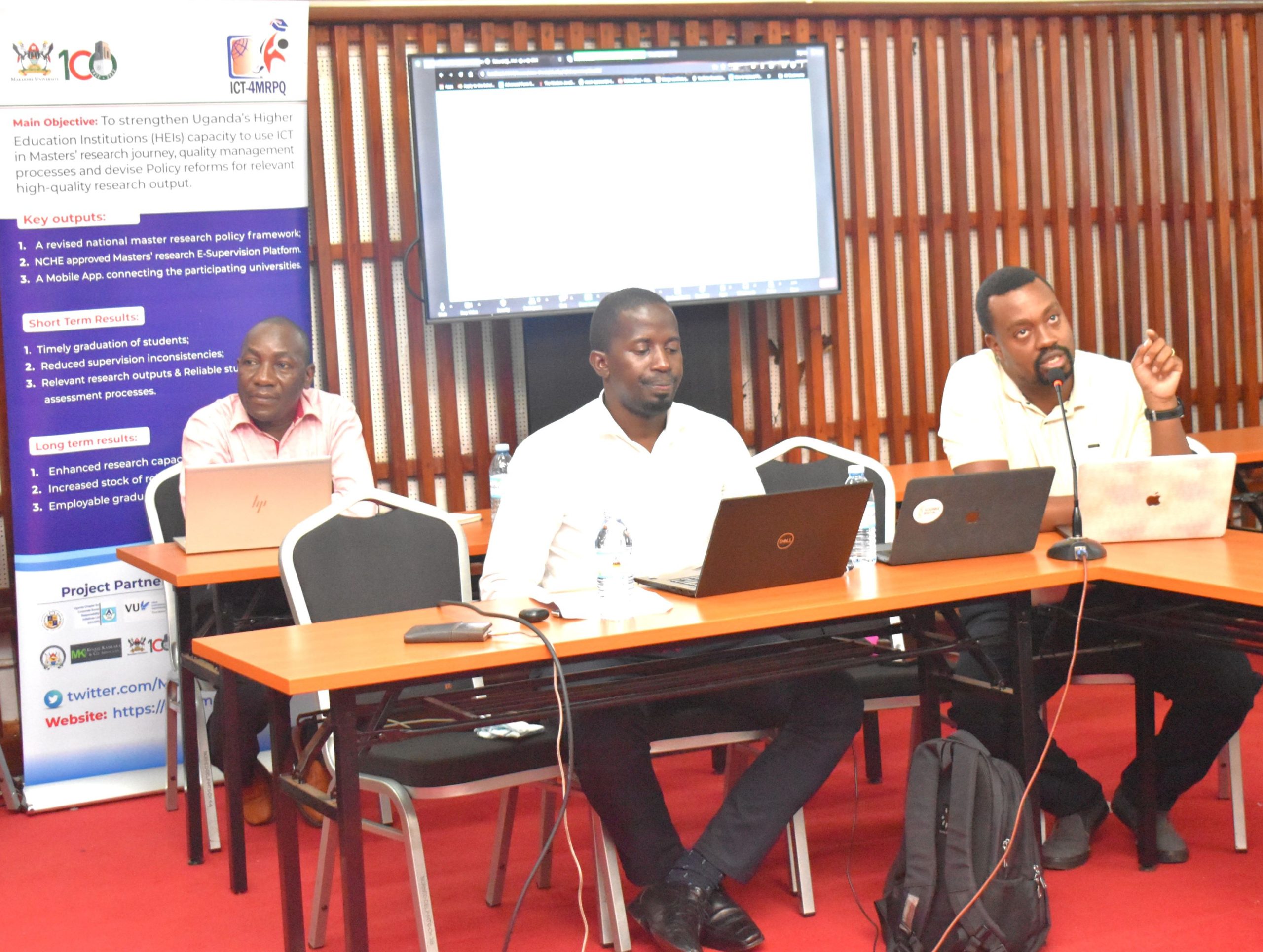******The E-Supervision Platform being developed by IT Experts from Makerere University and MUBS is intended to improve graduate research management Processes in HEIs in Uganda to enable students to graduate on time. It is one of the main objectives of the ICT-4MRPQ Project funded by the EU under Erasmus projects for the period 2023-2026 with the aim of strengthening Uganda’s HEIs capacity to use ICT in Masters’ research journey quality management processes.
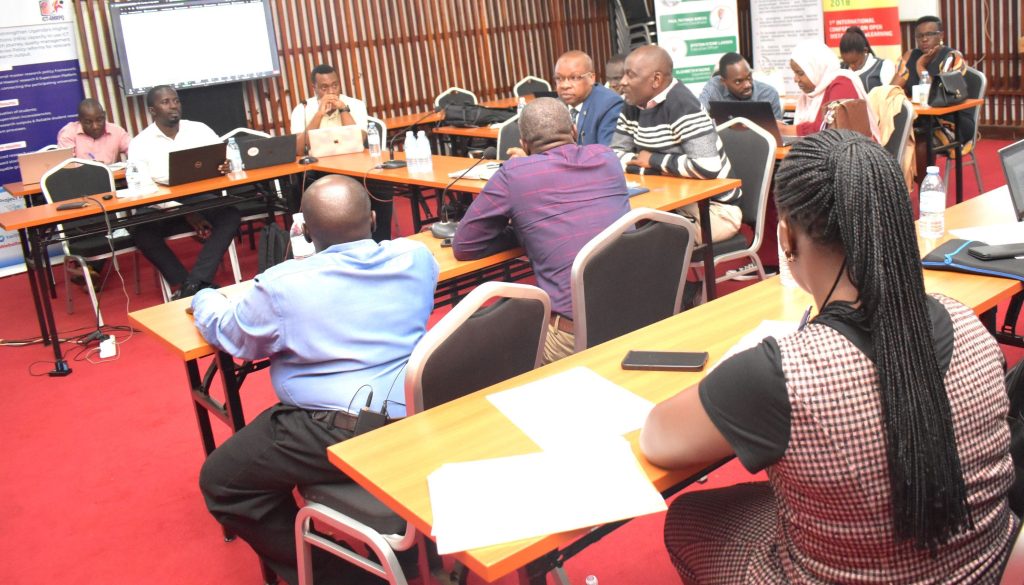
Overview
Makerere University in collaboration with Makerere University Business School (MUBS) and several other institutions are implementing a project aimed at improving Masters’ research management processes in Higher Education Institutions (HEIs) in Uganda. The project titled: “Strengthening Capacity for ICT Usage and Policy Reforms for Relevant and Quality Masters Research Process Management in Uganda’s HEIs (ICT-4MRPQ)” is funded by the European Union and headed by Assoc. Prof. David Katamba from MUBS. At Makerere University, the project is coordinated by Dr John Mary Kiberu from the Department of Geology and Petroleum studies, College of Natural Sciences (CoNAS). Through the project, the collaborating institutions intend to address quality assurance problems/gaps encountered by HEIs during masters’ research processes. These include; the absence of student-supervisor interaction records, increased redundancies in supervisor-student skills transfer, research turn-around time redundancy, decreased transparency in conducting viva-voce, and duplication of research outputs/plagiarism. One of the main objectives of the project is to develop an E-supervision platform to help students and supervisors to interact closely during the research processes. The E-Supervision web portal (https://mastersresearch.ug/) developed by a team of IT experts from Makerere University and MUBS has been identified as one of the components of the Research Information Management System (RIMS) of Makerere University. RIMS is a digital platform aimed at tracking all research outputs at Makerere University.
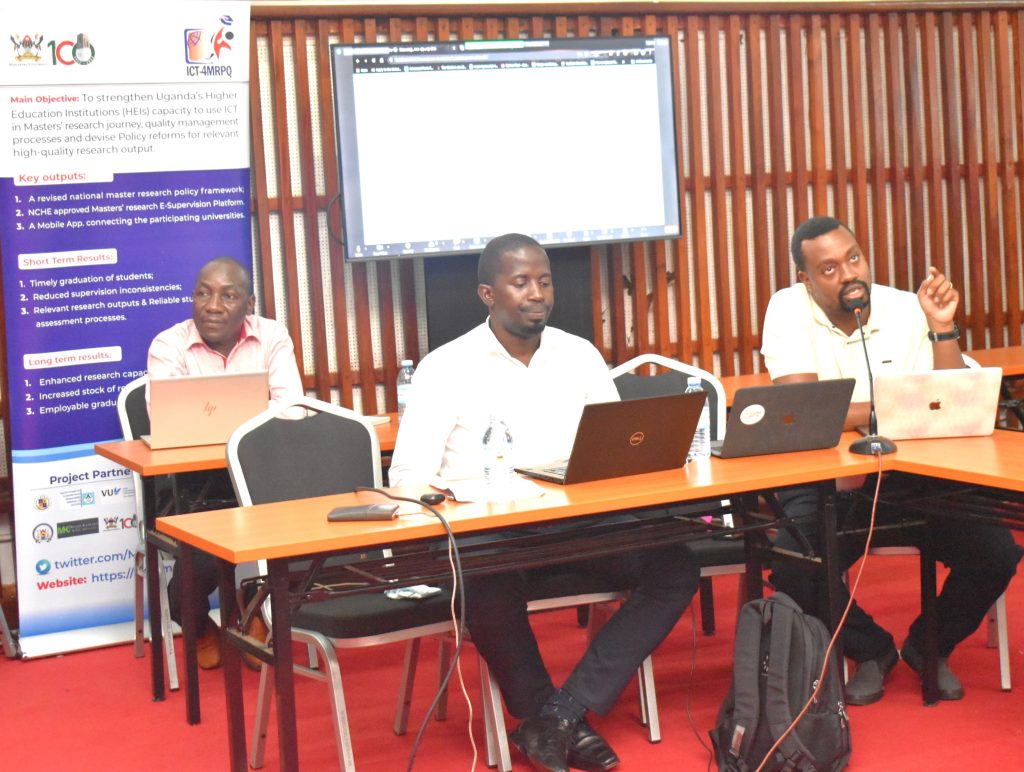
Demonstration of E-Supervision Platform to the project partners
On 9th April 2024, the project team led by Assoc. Prof. David Katamba and Dr John Mary Kiberu convened a meeting at Makerere University to demonstrate the E-Supervision platform to partner institutions. Partner institutions include: Mbarara University of Science and Technology (MUST); Stichting Vu; Kyazze, Kankaka & Co Advocates; Uganda Chapter for Corporate Social Responsibility Initiatives (UCCSRI); Universidade De Lisboa; and the Uganda National Council for Higher Education.
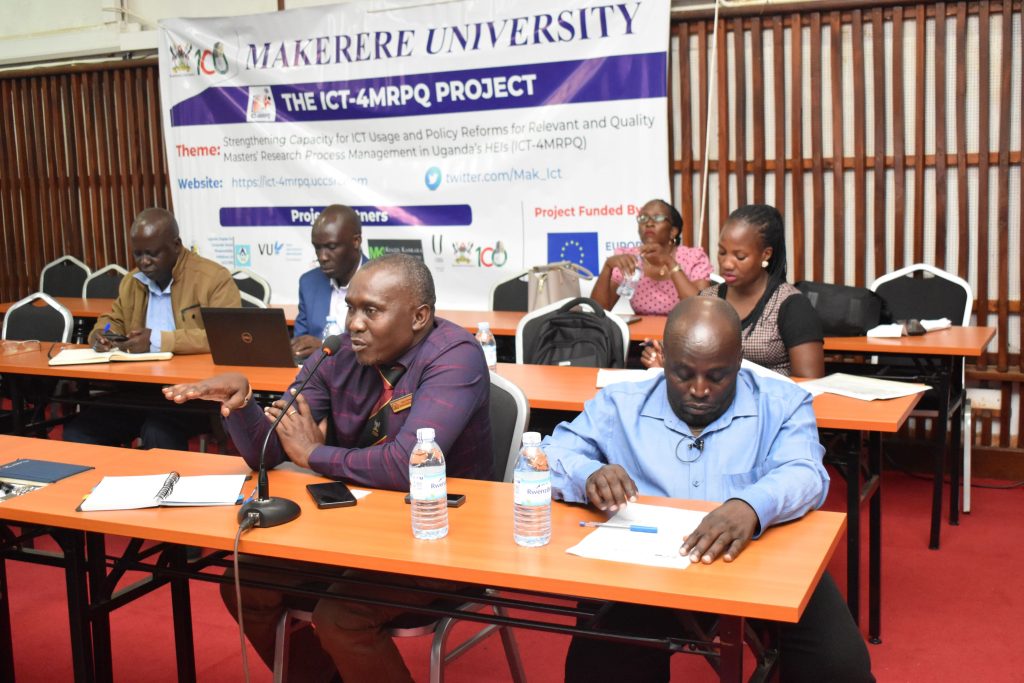
At the meeting, the developers of the system led by Mr. Juma Katongole and Mr. Joshua Muhumuza from the Directorate of ICT Support (DICTS) at Makerere University presented the system, demonstrating all the graduate research tracking processes from the time a student submits their proposal to the time of the viva voce. Key features of the E-Supervision platform include; i) the Proposal Management stage which entails submission of the proposal, review of the proposal by the supervisors, approval by the Head of Department, and approval by the Dean. It also entails allocation of Proposal Review Committees and the approval chain; ii) Intent submission – a process that involves the submission of an intent by the student, supervisory endorsement, Head of Department approval, Dean’s approval, and appointment of examiners by the Principal; iii) thesis management where a student submits the thesis, which is then reviewed by supervisors, endorsed by the Head of Department, endorsed by the Dean, examined to the stage of the viva voce. In addition to these processes, the system manages administrative functions such as student supervisor assignment, examiner appointment, user management, report generation, meeting schedules and system update statistics.
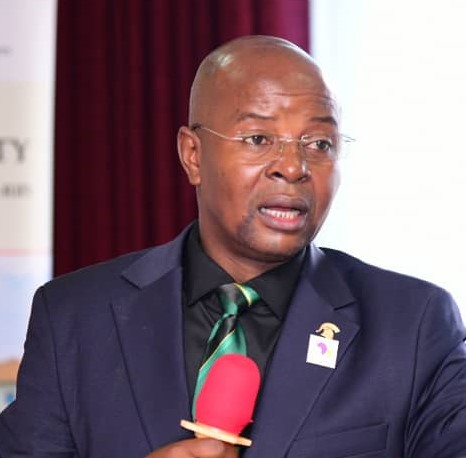
Strategies for improving the system
Following the presentation, participants gave enriching feedback intended to improve the functionality of the E-Supervision platform before it is rolled out. Key issues arising included the need to structure the system to track all the preparatory stages before presentation of the proposal. Participants also expressed the need to appreciate and cater for the dynamics in research management at the different institutions. This would require conducting a survey to establish the peculiarities in the graduate management processes at the different institutions of Higher Learning. Other issues raised included the need for the system to progressively track all the graduate management processes up to completion and to give real time feedback. Participants also called for inclusion of a system to run a plagiarism test. They also emphasized the need to conduct disseminations about the system to get buy-in from the end users.
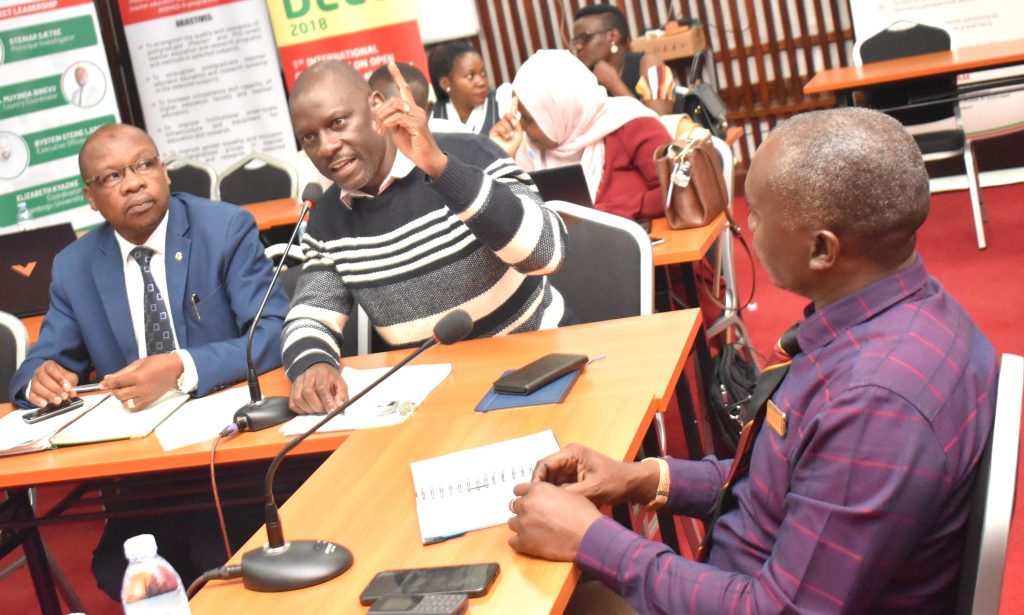
Appreciation for the system
Addressing participants, the Director, Directorate of Research and Graduate Training at Makerere, Prof. Edward Bbaale applauded the project team noting that the development of the E-Supervision platform is an effort in the right direction that will greatly improve graduate management processes and enable students to complete on time. “I commend the PIs for the approach they have taken to bring together various institutions of higher learning in this important aspect of managing graduate research processes. As you may be aware, Makerere made a resolution to become a research-led University and one of the building blocks in this is graduate training. The system is highly commendable as it supports a crucial aspect of graduate training which is research supervision.” Additionally, Prof. Bbaale emphasized the importance of networking, internationalization and multi-disciplinarity in the efforts geared towards making Makerere a research-led University. He expressed gratitude to the European Union for the support extended to the project and many others at the University.
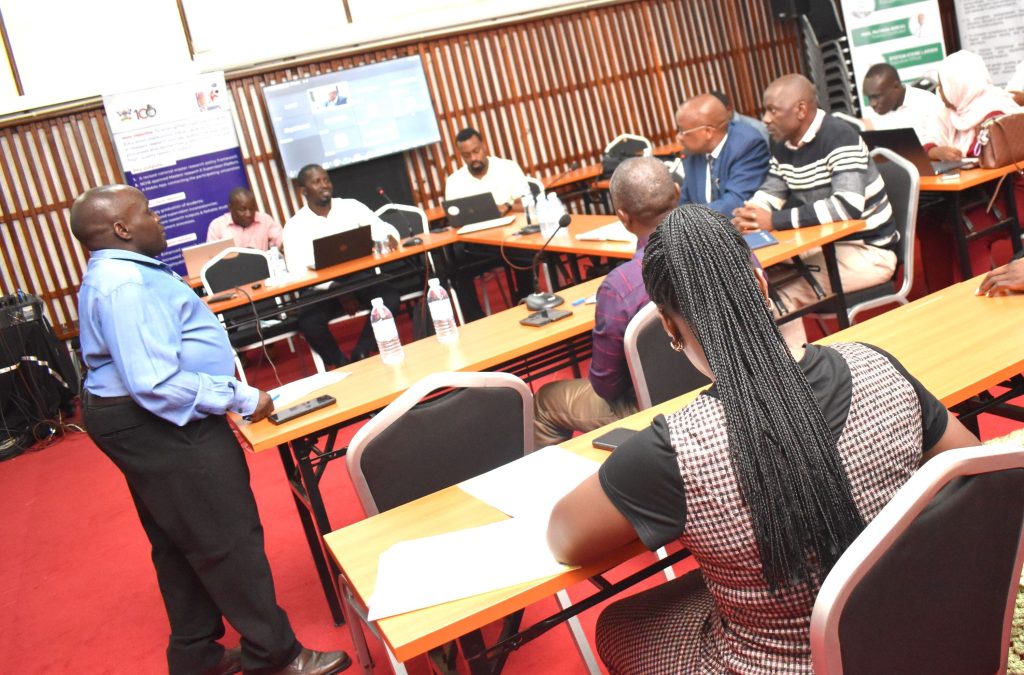
In his remarks, the team leader of the Project, Assoc. Prof. David Katamba commended the developers of the system for the progress registered. He also appreciated the Director DRGT at Makerere, Prof. Edward Bbaale for the support extended to the project. He appreciated the Deputy Principal, also head of academic programmes at CoNAS, Prof. Juma Kasozi, and the Deputy Director, Administration and Graduate Training at Makerere, Prof. Julius Kikooma for working closely with the project team to refine the system. Similarly, he expressed gratitude to the Makerere University team led by Dr John Mary Kiberu for their commitment and positivity towards achieving the objectives of the project. Other project members at Makerere are; Dr Karidewa Nyeinga, Department of Physics; Dr Denis Okello, Department of Physics; Dr Godfrey Mayende, Institute of Open and Distance Learning; Dr Caroline Asiimwe, Department of African Languages, College of Humanities and Social Sciences; Ms. Joan Nakajigo, Department of Geology and Petroleum studies; and Mr. Juma Katongole, Directorate of ICT Support (DICTS).
Key objectives of the ICT-4MRPQ Project
i) Updating the Research Process Quality Management Policies and Guidelines (at national level – NCHE; and at university level) in the context of masters students’ research,
ii) Increasing the capacity of Uganda’s NCHE and HEIs to participate in the definition, implementation and monitoring of master’s research policy reforms necessary for setting up a national common master’s student research agenda,
iii) Documenting critical aspects of the master’s student research journey, and;
iv) Building capacity in the use of ICT as a digital skill inclusion mechanism which can reduce various forms of discrimination against women/girls.

